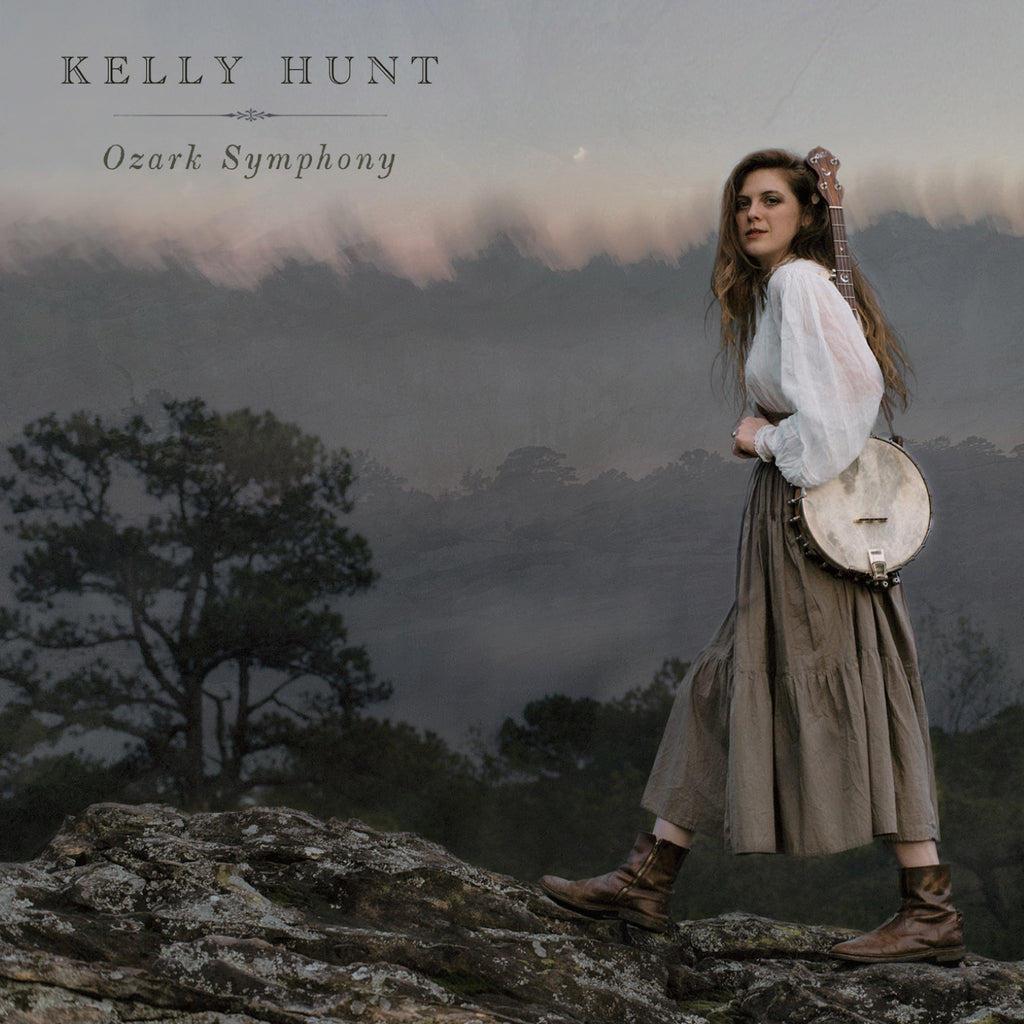
Produced by Dirk Powell (Joan Baez, Eric Clapton, Levon Helm, Rhiannon Giddens, Jack White)
With special guests Mike McGoldrick, Natalie Haas, Dirk Powell and Kai Welch
Singer/songwriter Kelly Hunt’s new album, OZARK SYMPHONY, is the fruit of her many journeys. The songs tell universal stories of life’s peaks and valleys with stories set again a backdrop of the prairie, mountains, and river delta spanning the Midwest and deep South, all of which intimately shaped the contours of her life. Taken as a whole, the album establishes Hunt as a vital voice Americana music, standing shoulder to shoulder with a long line of Southern songwriter/poets including Lucinda Williams, Pierce Pettis, and Nanci Griffith.
For Hunt, making OZARK SYMPHONY was a journey in and of itself, one which led her to producer Dirk Powell and his Cypress House studio in Breaux Bridge, Louisiana. Powell, whose musical pedigree runs deep in Celtic, Cajun and old-time music, drew from across a diverse community of musicians in the US and UK, to cultivate a sonic landscape around the album’s 12 tracks which brought the OZARK SYMPHONY vividly to life.
Stand out tracks include the album’s title track, featuring Natalie Haas on cello, which was born on a twilight drive through the stretch of Ozarks and Hunt says “Somehow that phrase seems to embody the spirit of the story I’ve set out to tell while also expressing, in a broader sense, the way I see myself and the music I make.”
The track “Evangeline” is a thematic centerpiece of the album. It is a dramatic re-imagining of the Acadian Evangeline story—a folktale inspired by true events and immortalized by the 19th century Longfellow poem. An additional standout track is by the simple duet “What About Now?” which serves as the perfect vehicle for Powell’s mandolin and harmony vocals. Together Hunt and Powell tease out the playfulness of this song—light-hearted and tender with a touch of melancholy—while at the same time evoking a sense of restless urgency which Hunt says she was feeling very keenly at the time.
The album closes with the song “Over the Mountain” which Hunt wrote on a gorgeous summer morning on her way to a funeral. She explains that it was a charged moment—equal parts grief and gratitude, beauty and sadness—and she was reminded of something a friend’s grandmother used to say: “There’s a comin’, there’s a goin’.” On their first meeting, Powell made an impromptu recording of Hunt singing the song by a cave that was a ritual site for Native Americans, just as dusk was falling and the cicadas struck up their chorus. He later spliced this live version into the studio track, ending the album with a veritable Ozark symphony, as timeless and true as the mountains themselves.
“Hunt lets the instrument shape her syllables. From the first instant you know
you’re in a place where there is no sense of time, where anything can happen and
no one will ever have to admit to a thing.” —ROLLING STONE
“Uncanny is Hunt’s innate ability to summon the same vigorous energy of classic
folk players, all while pushing forward to modernize the instrument’s role in
contemporary songwriting...She delivers her lyrics with an earthen frankness that
can’t be taught. ” —POPMATTERS
“Standing shoulder to shoulder with contemporaries like Gillian Welch and
Rhiannon Giddens...folk music harking back to the stripped-down sounds of
Leadbelly, Robert Johnson and Woody Guthrie.” —AMERICANA UK







